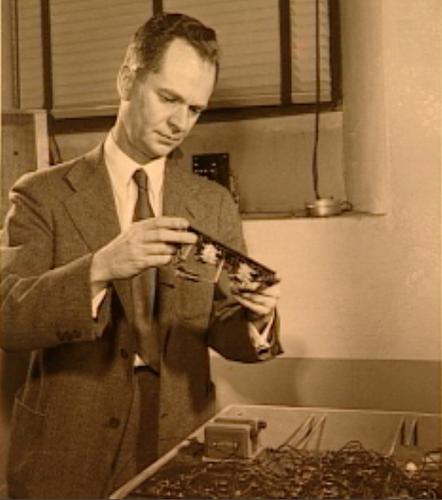Psychologist William K. Estes’ research focused on the science of learning and memory, and made significant contributions in behavioral and cognitive sciences throughout his career. Estes and his colleagues established a new sub-discipline of psychology, mathematical psychology, using mathematical equations to describe the laws of learning and memory.
Estes and his mentor B.F. Skinner introduced the conditioned emotional response/conditioned fear response (CER/CFR) paradigm to analyze anxiety. Rats were trained to respond on an operant schedule that produced a steady response rate, after which they were tested with an electric shock stimulus that was conditioned as a fear signal. The fear signal suppressed the operant response, and the magnitude of suppression was used as a measure of anxiety. The technique became widely used to study Pavlovian conditioning in a variety of organisms.
In order to develop a statistical explanation for the learning phenomena, Estes developed the stimulus sampling theory. Estes’ theory gave a much better account than others of the randomness seen in both animal and human learning, and his theory helped to explain why even highly trained individuals don’t always make the same response perfectly every time.
By Jen Santisi


